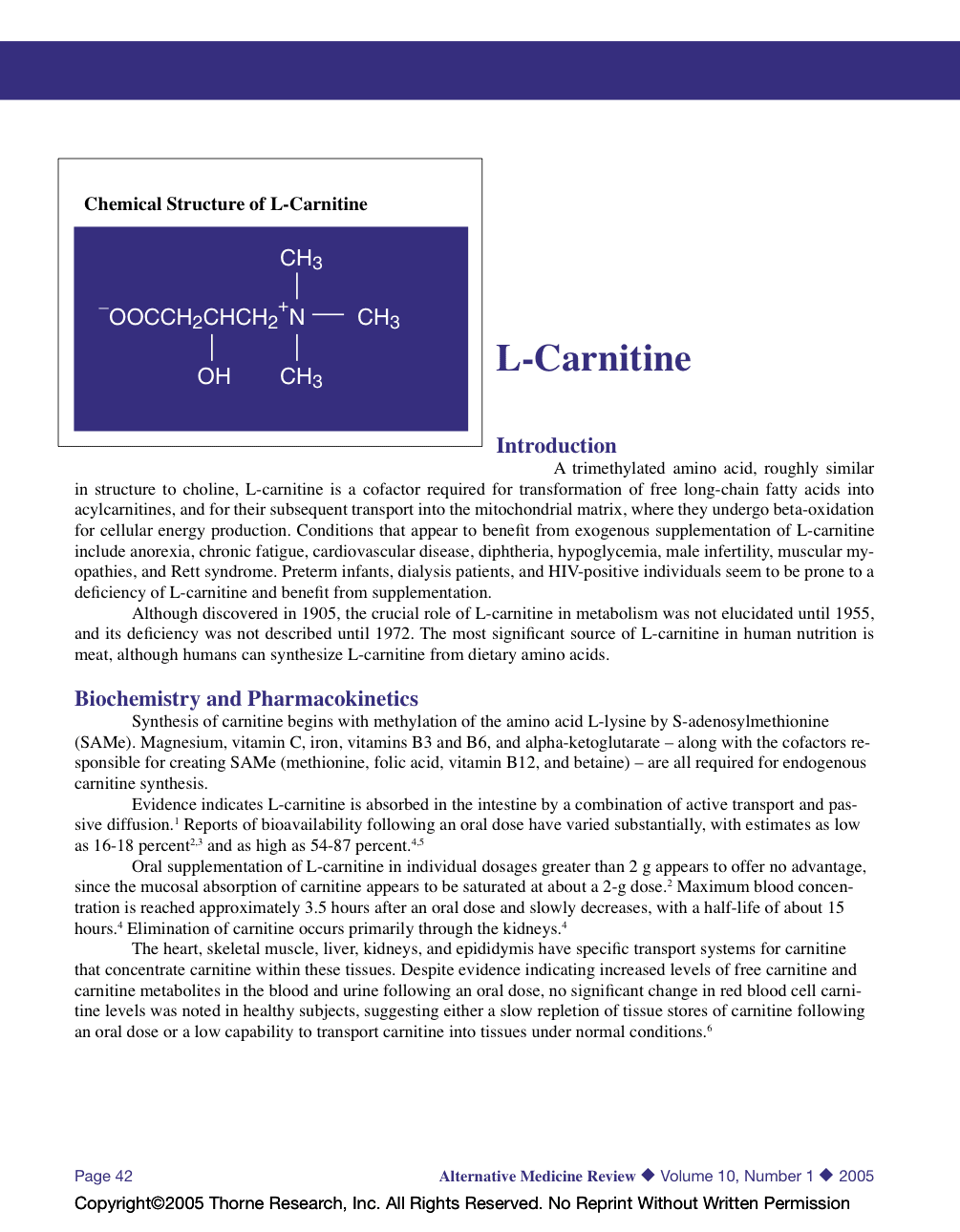Abstract
A trimethylated amino acid, roughly similar in structure to choline, L-carnitine is a cofactor required for transformation of free long-chain fatty acids into acylcarnitines, and for their subsequent transport into the mitochondrial matrix, where they undergo beta-oxidation for cellular energy production. Conditions that appear to benefit from exogenous supplementation of L-carnitine include anorexia, chronic fatigue, cardiovascular disease, diphtheria, hypoglycemia, male infertility, muscular myopathies, and Rett syndrome. Preterm infants, dialysis patients, and HIV-positive individuals seem to be prone to a deficiency of L-carnitine and benefit from supplementation. Although discovered in 1905, the crucial role of L-carnitine in metabolism was not elucidated until 1955, and its deficiency was not described until 1972. The most significant source of L-carnitine in human nutrition is meat, although humans can synthesize L-carnitine from dietary amino acids.

